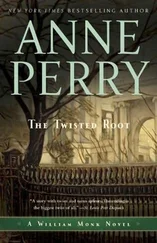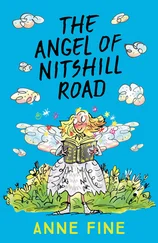Constance did not have cancer. It was just a cyst or duct, some change since the children. She was thirty-seven, for God’s sake. She had three children and a husband to look after, not to mention her widowed mother. Constance did not have the time for cancer.
She would be fine.
But it was hard to keep steady, all the same. She was about to blurt something to the nurse who pulled the curtain back; something mad. Who will look after the children if I die? But of course she said nothing.
The nurse invited her out on to a chair and went over her details: Constance McGrath, address, date of birth, next of kin.
‘Dessie McGrath,’ she said. ‘Same address.’
‘Contact number?’
Constance gave her Dessie’s mobile number, which felt like an oddly intimate thing to do. ‘But don’t call him, all right? This kind of stuff gives him the flu.’
‘Ah,’ said the nurse.
Constance felt a twinge of betrayal, though it was true that Dessie went a bit peculiar whenever she was sick. There was no escaping it: he spent all night checking his pulse and ended up with multiple sclerosis. Which was just funny, really. She knew it was because he cared.
‘Any medications?’ said the nurse.
Constance was on a little something that was nobody’s business but her own. ‘No,’ she said.
Then the nurse made a few more marks on her file, and left. She came back to call Constance through the final door, where a woman waited beside a big white machine. It was the radiologist, and she gave Constance a smile: a woman in her thirties with beautiful highlights and lowlights, she seemed kind. The hair was expensive, mind you; about a hundred and fifty quid, right there, growing out of her head.
‘You can slip off the gown for me,’ she said, because people were always ‘slipping’ in and out of things in hospitals, no one ever just took off their clothes. But the cotton felt light as it left her: Constance put it on a chair and turned around.
There was no trace of the scarred woman in the room, but the recent fact of her made Constance grateful, as she walked up to the machine, for the lesser disaster of her bare torso at thirty-seven, thinking, This is the chest my husband loves and my children will love for a few years yet, and I never loved it, not much, why should I?
Not that she would wish them gone.
‘And where is the area of concern?’ said the radiologist as she scooped a breast up on to the glass-covered platform.
The radiologist did not wear gloves but her little hand was so easy and expert that Constance felt almost soothed by it. The last person she had touched was the woman with all the scars and Constance tried to imagine what all that looked like, or felt like, up close. She wanted to know about the cutting and where, on her body, did it stop. So many different people, and the stories their bodies held. She wondered how many times a day the radiologist lifted this part of a woman on to the ledge of her machine, and pressed the top plate down to the point of pain. She judged it well, at any rate. At just the moment Constance drew in a sharp breath, she disappeared behind the control panel and its protective window; there was a buzzing, then a beep, and the machine, as though shocked at its own behaviour, let her go.
All the time, there was chat, which would annoy you, if you were the type to be annoyed.
‘Oh I love the Aran Islands,’ she said, as she lifted Constance’s arm up over the top of the machine.
‘Now I know that feels a little too high, but just bear with me. No, I went there on a school trip, would you believe, and I loved it. At sixteen.’
The Perspex descended as the radiologist worked Constance into position and she was gone behind the desk before Constance could say how much she too loved the Aran Islands, their peaceable flatness that made them at one with the weather.
‘If you like it wet,’ she said, as the machine beeped, and took fright, and let her go.
‘Oh indeed.’
‘I’ll just put a little biro mark on, if you don’t mind,’ she said. ‘Just to say.’ Though say what she did not clarify and, when Constance looked down, she saw four dots in a neat square marking the place where she thought the lump might be.
Everything seemed to happen very fast.
Before she knew it, the radiologist was looking up at a screen, and pressing buttons in a definitive way.
‘Can you see anything?’ Constance said.
‘Em. The doctor will have a look for you. That could be. It could be the kind of thing you could just work out. I could just work it out for you.’
This made no sense at all to Constance, who said, ‘You can’t see your hand in front of your face, some days, when the mist comes in.’
‘You can slip on your gown for me now,’ said the radiologist, and she checked that Constance was decently covered before opening a door to a side room.
‘Bríd will bring you up to the ultrasound, all righty?’
And there was the technician in the white coat, holding the envelope. At least Constance assumed she was a technician because the coat was not the cleanest and she was a little unkempt, but she could be head of the department for all Constance knew.
‘I wish I was there now. Don’t you?’ said the radiologist. She was talking about the Aran Islands.
‘Anywhere but here,’ said Constance. It was supposed to be a joke but her voice sounded a bit sudden and aggressive, and both the hospital women seemed saddened by this. It was not their fault that people got cancer. If anything, the opposite was the case. It was hard to be so misunderstood.
Constance followed the technician, her eyes on the big brown envelope, her gown barely fastened at the back, and she sat beside Margaret Dolan on the banquette.
‘My God,’ she said.
‘Well that’s that bit done,’ said Constance.
‘Dear Jesus God almighty,’ she said. ‘I thought I was in for my womb.’ Then she talked about her bloat again. There was no stopping her. Something had been unleashed by their shared experience of the big white machine.
‘Oh dear,’ said Constance. ‘Oh dear,’ sneaking her fingers under her sleeve, to check her little wristwatch. Half past twelve.
No one knew she was here. Not Dessie, who had clearly forgotten what day it was. Not her mother. Not her friends who were were all scattered now. Eileen in America, Martha Hingerty in London, and Lauren in Strasbourg — the last to go. They were so rarely home. By the time Constance caught up with them, all her news had gone stale.
And what was her news?
She had cancer. Or, she did not have cancer.
But that wasn’t the point, exactly. Constance realised it was for the girls she had been saving the details: the radiologist’s highlights, the unhygienic look of the technician’s coat, the woman who thought she was in for her womb. There was no use telling Dessie, who would not see the connection between the cost of a haircut and the lump in your breast. Only the girls could run with the ironies, the ‘Oh my God’ of it all. They had been a gang since school.
Eileen Foley, Martha Hingerty, Lauren O’Dea. When they finished their Leaving cert they all went up to Dublin together, while Constance stayed back a year to repeat her exams and work behind the counter in the Medical Hall. And it was the loneliest year of her life. Constance was supposed to study Pharmacy, but she couldn’t get into Pharmacy, and when she failed for a second time there was much weeping and gnashing of teeth in Ardeevin. Her uncle Bart finally took pity on her and swung her a job in a big chemist’s on Grafton Street so she should learn about the business side of things before coming back home. But Constance had no intention of coming back to the Medical Hall. Eileen Foley was saving for New York and, at nineteen, Constance was going there too.
Читать дальше












